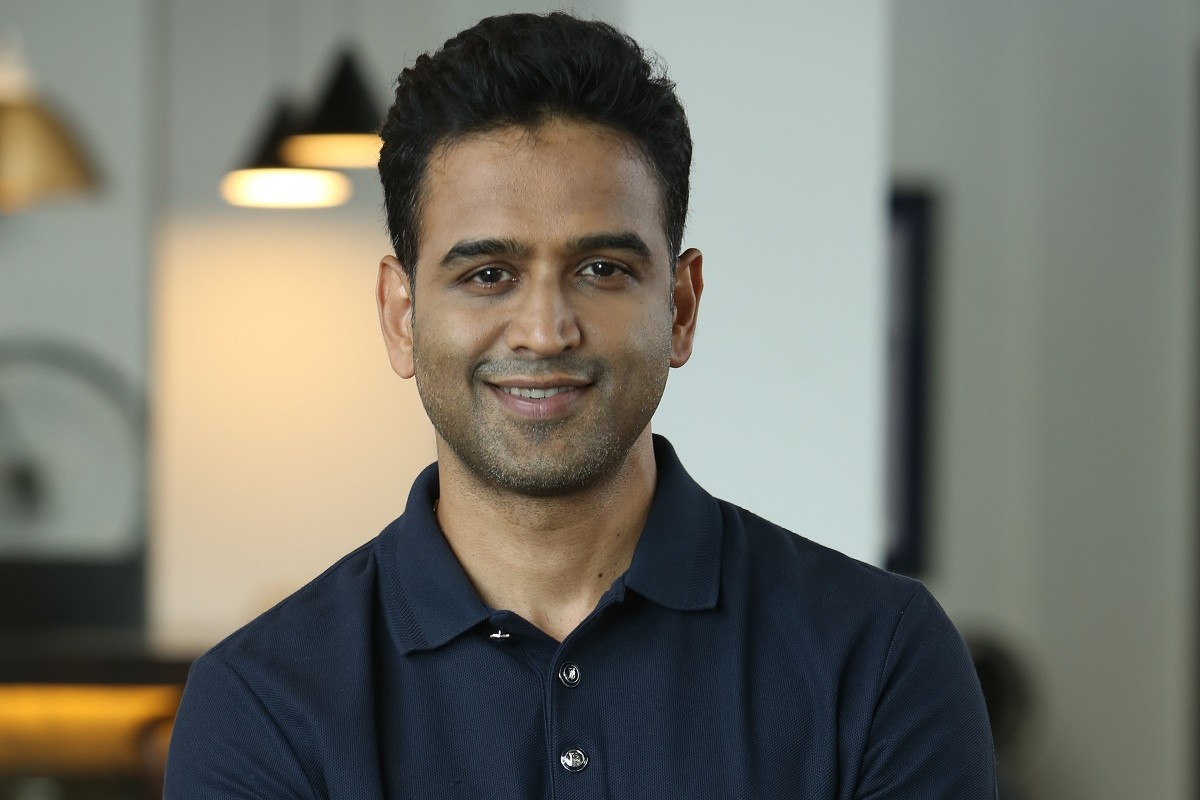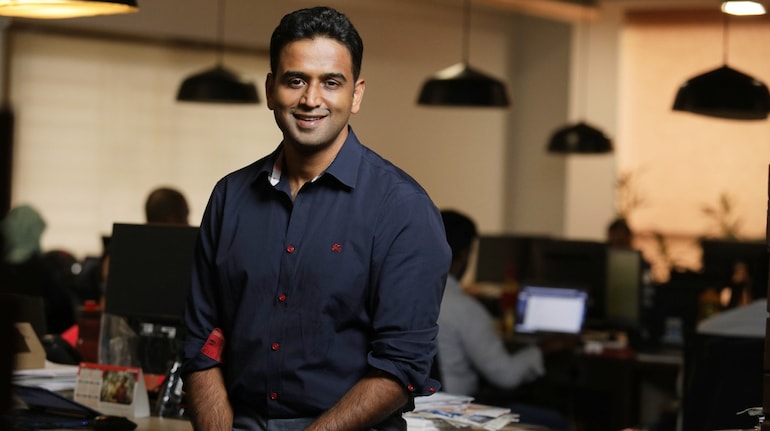Zerodha’s founder caution that many ESOPs granted in the last 3 years would be worthless. Can dropping share prices hurt employee morale?

Zerodha’s founder caution that many ESOPs granted in the last three years would be worthless can dropping share prices hurt employee morale?
In a Twitter conversation, Zerodha Founder Nithin Kamath cautioned that many corporations’ issued ESOPs would be worthless in the coming years. He discussed the global decline in the share values of high-growth IT businesses.
Employee stock ownership plans (ESOPs) provided by numerous corporations and startups during the last three years have run out of money, according to Nithin Kamath.
Essentially, the value of the shares vested in the employees will be majorly lower than the amount paid for them. The recent market sell-off has damaged the value of the shares, especially in tech equities, which recalls Kamath of the dot-com explosion in the 1990s. “This probably impairs many people’s morale, making things even more difficult for those in charge.” “3/7,” Kamath wrote in a sequence of seven tweets.

The precipitous drop in the stock values of high-growth technology businesses throughout the world is reminiscent of the dot-com boom.
India has survived the storm in part because few of these companies are publicly traded, and several private ones received major funds last year. May 10, 2022— Nithin Kamath (@Nithin0dha)
This is similar to what Ashneer Grover, the embattled co-founder of the Indian financial business BharatPe, had said on Twitter just a day before. “Perspective is everything.” If you were a Zomato employee who exercised your ESOP at a price of Rs.140 or more after the IPO, you probably paid more in taxes per share than what you can purchase it for now on the open market.
Markets are handing everyone ESOPs at 56 per share ;),” Grover tweeted.
Perspective is everything. If you were a Zomato employee who exercised your ESOP at a price of 140 or more after the IPO, you probably paid more in income tax per share than what you can purchase it for now on the open market. Markets are providing everyone ESOPs at a price of 56 per share;)
May 9, 2022 — Ashneer Grover (@Ashneer Grover)Since the outbreak, a slew of tech businesses have distributed ESOPs amid a surge in valuations. According to the most recent regulatory filings with the Registrar of Companies (RoC), Zerodha formed a new ESOP and awarded 7,00,000 options under its new ESOP plan ahead of Diwali in November 2021.Entrackr estimates that the new pool is worth Rs 100 crore in total. Paytm, Swiggy, and Rivigo are included in the companies that have increased their ESOP pool.
Tekion, the automobile retail platform, was reported last week to have purchased back ESOPs worth close to Rs 300 crore in a second liquidity event less than six years after its creation. A total of 400 employees took part in the repurchase.
This should help employees lower their expectations, according to Kamath. “It is absurd that companies must raise millions of dollars in order to meet personnel costs in order to develop a minimal viable product. 6/7, “Kamath explained.
The other concern is that ESOPs granted in the last three years will be mainly out of money, and employee net worth will have suffered major losses. This probably lower employee morale, making things even more difficult for business owners. “,” Kamath wrote in a sequence of seven tweets.
The precipitous drop in the stock values of high-growth technology businesses throughout the world is reminiscent of the dot-com boom.
India has survived the storm in part because few of these companies are publicly traded, and several private ones received major funds last year.
Even while high-growth tech stocks listed in India have declined, according to Kamath, there aren’t enough of them, which is why they haven’t had a major influence on the markets. According to him, Indian private markets benefited from all of the money moved from China to India last year.

According to the most recent regulatory filings with the Registrar of Companies, Zerodha formed a new ESOP in November last year, allocating 7,00,000 options under its new ESOP plan (RoC). Entrackr estimates that the new pool is worth Rs 100 crore in total. Paytm, Swiggy, and Rivigo are included in the companies that have increased their ESOP pool.
Tekion, the automobile retail platform, was reported last week to have purchased back ESOPs worth close to Rs300 crore in a second liquidity event less than six years after its creation. A total of 400 employees took part in the repurchase.
Given India’s population, demography, mobile+internet, and predicted GDP development, Kamath believes the country has a lot of interest globally. “I’m told there’s a lot of money waiting to join Indian private markets, around $25 billion.” However, FIIs withdrawing funds from public markets does not add up. “5/7,” Kamath said on Twitter.
Kamath expressed optimism that employee expectations in India will improve, particularly in the IT, product management, and other areas. “It’s absurd that businesses must raise millions of dollars to pay personnel costs only to produce a minimal viable product.” “6/7,” Kamath declared.
According to Kamath, entrepreneurs must oversell target market size and growth prospects to investors in order to attract funds. As a result, unattainable targets are established, and the company is neither sustainable, robust, or lucrative “to weather storms like we are experiencing now internationally,” he concluded.
Speaking about the global drop in share prices of high-growth IT companies, Kamath stated that India has so far survived the storm, owing to the fact that not many companies are public and many private companies raised a lot of money last year.
Kamath believed it was “crazy” how rapidly expectations shifted from growing at any costs to creating free cash flows in order to survive the next two to three years, given the difficulty of acquiring capital. He claimed that corporations, particularly bigger ones, would find it very hard to change fast.
Meanwhile, Ashneer Grover, the former co-founder and managing director of the Indian fintech business BharatPe, turned to Twitter to say that markets are handing out ESPOs to everyone.
“Perspective is everything.” If you were a Zomato employee who exercised your ESOP at a price of 140 or more after the IPO, you probably paid more in taxes per share than what you can purchase it for now on the open market. Markets are handing everyone ESOPs at 56 per share ;),” he tweeted.

Can dropping share prices may hurt employee morale for the likes of Paytm, Zomato? Nithin Kamath believes So
The steep drop in the stock values of high-growth IT firms around the world is becoming ridiculous, according to Nithin Kamath, Founder and CEO of Zerodha, India’s largest brokerage business (boom-bust cycle).
He feels India is fortunate to have weathered the storm since few of these firms are publicly traded, and many private ones received significant funds last year. However, the situation may suddenly become more challenging for everyone.
In most nations, technology stocks are down sharply. In the United States, some names have plummeted by as much as 90%. Many of India’s newly listed firms are also selling below their initial public offering pricing. AGS Transact, Paytm, PolicyBazaar, Fino Payments, CarTrade, and Zomato are just a few of them.
“It’s incredible how rapidly expectations shifted from achieving growth at any costs to creating free cash flows in order to survive the next two to three years, when financing capital may be more difficult.” “It’s nearly hard for firms, especially larger ones, to adjust rapidly,” Kamath remarked in a series of tweets on Tuesday.




